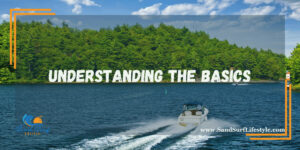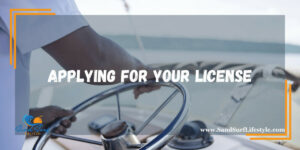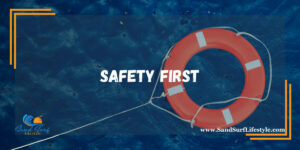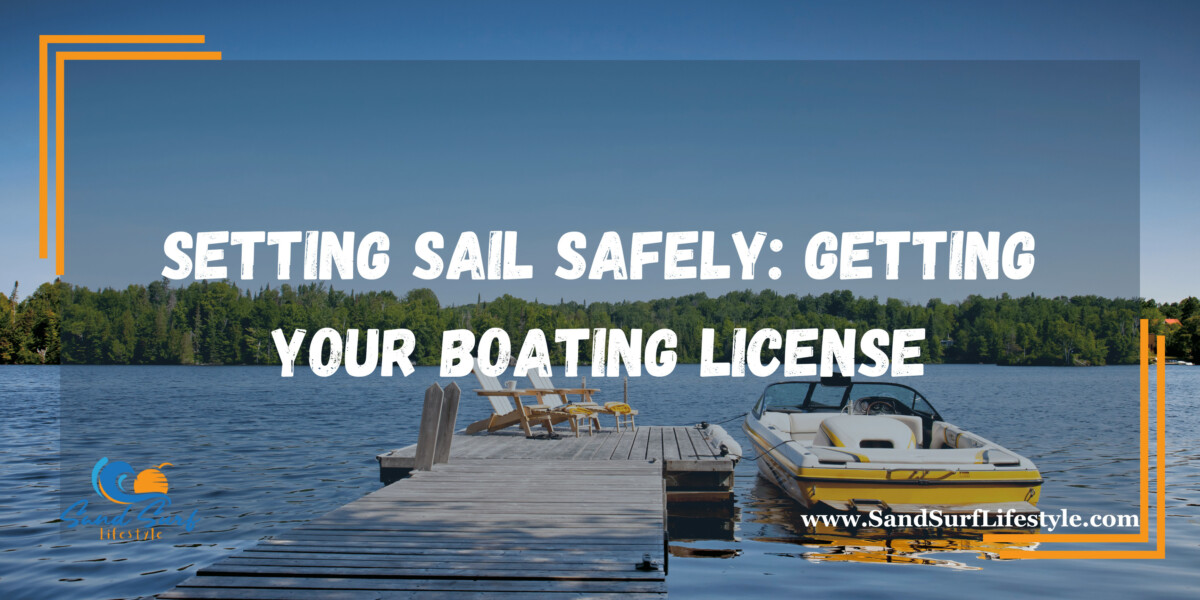If you’ve ever dreamt of cruising along serene waterways, feeling the gentle rocking of a boat beneath you, or enjoying the thrill of water sports, then getting a boating license is your first step toward making those dreams a reality. Boating is not just a recreational activity; it’s a way to connect with nature, relax, and create lasting memories with friends and family.
1. Understanding the Basics

Before venturing into the process of obtaining a boating license, it’s imperative to grasp the fundamental aspects. A boating license, often referred to as a boating safety certificate, is an indispensable requirement in numerous states and countries to legally operate a boat. This certification signifies your competence in operating a vessel safely, demonstrating your understanding of crucial navigation and safety protocols.
It’s worth noting that the precise prerequisites for obtaining a boating license can differ significantly based on your geographical location. The regulatory landscape pertaining to boating can vary from one state or country to another. Hence, thorough research into the specific regulations applicable in your area is a vital preliminary step. Understanding these prerequisites and regulations not only ensures your compliance with the law but also guarantees that you are adequately prepared to navigate the waters safely, thus enhancing your overall boating experience.
To learn about the expenses of fishing licenses, check out this article.
2. Eligibility Requirements
While age restrictions for obtaining a boating license are generally lenient, it’s crucial to recognize that eligibility criteria can exhibit considerable variation based on your specific location. To embark on your journey toward securing a boating license, you’ll need to satisfy a set of fundamental prerequisites:
Valid Identification Document
A crucial initial requirement is the possession of a valid identification document, such as a driver’s license or passport. This serves as proof of your identity and is necessary for processing your license application.
Completion of Approved Boating Safety Course
One of the central components of securing a boating license is the successful completion of a boating safety course. These courses are typically sanctioned and approved by your state or country’s relevant authorities. They are designed to equip you with the essential knowledge and skills required for safe boating, encompassing navigation rules, emergency procedures, and proper watercraft handling.
Passing a Knowledge Exam
Following the completion of the boating safety course, you will need to pass a knowledge exam. This examination evaluates your understanding of boating regulations, safety protocols, and navigational procedures. Achieving a passing score on this exam is a significant milestone on your path to obtaining a boating license.
Comprehending and fulfilling these prerequisites is pivotal in ensuring your eligibility for a boating license. Keep in mind that adherence to local regulations is essential, as specific requirements can vary significantly depending on your geographical location.
3. Choosing the Right Course
One of the essential steps in obtaining your boating license is enrolling in a boating safety course. These courses are designed to educate aspiring boaters on various aspects of safe navigation, watercraft handling, emergency procedures, and local regulations. Here are your options for taking a boating safety course:
In-Person Courses
In-person boating safety courses are a traditional yet valuable method of learning. They are offered by many states and are typically conducted by experienced instructors who bring real-world expertise to the classroom. These courses provide hands-on training, allowing participants to familiarize themselves with essential boating equipment and practices. Moreover, the in-person setting facilitates interaction with both instructors and fellow boating enthusiasts. This environment promotes the sharing of experiences and the opportunity to ask questions, making it an excellent choice for those who thrive in a structured, social learning setting.
Online Courses
Online boating safety courses have gained popularity for their flexibility and accessibility. These courses can be taken at your own pace, making them an ideal choice for individuals with busy schedules. They often include interactive lessons, instructional videos, and quizzes, ensuring comprehensive learning. The online format allows you to study from the comfort of your home, and you can revisit the material as needed. It’s a convenient option for those who prefer self-paced, technology-driven learning experiences.
Combined Courses
Combined boating safety courses offer the best of both worlds. They provide a balanced approach by blending in-person and online learning components. This flexibility allows learners to choose the method that aligns with their preferences and availability. Typically, the theoretical aspects are covered online, while hands-on and practical aspects are addressed in in-person sessions. This approach caters to diverse learning styles and ensures that participants receive a well-rounded education in boating safety, making it an appealing option for many aspiring boaters.
4. Course Content
Boating safety courses cover a wide range of topics to ensure that you’re well-prepared for safe boating. Here are some of the core subjects you can expect to encounter in these courses:
Navigation Rules
Understanding navigation rules is akin to learning the “rules of the road” on the water. These rules are a vital aspect of safe boating, as they dictate how vessels should interact to avoid collisions. They cover topics such as right of way, overtaking, crossing situations, and the use of lights and signals. Proficiency in navigation rules ensures that boaters can navigate crowded waterways safely and predictably, reducing the risk of accidents and maintaining order on the water.
Boat Handling
Boat handling encompasses the practical skills required to operate and control your vessel effectively. This includes essential maneuvers like docking, anchoring, and maneuvering in tight spaces. Proficiency in boat handling ensures that you can navigate harbors, marinas, and busy waterways with confidence. It also plays a crucial role in ensuring the safety of your boat and those on board, as well as preventing damage to other vessels and structures.
Safety Equipment
Familiarizing yourself with safety equipment is paramount for boaters. This involves understanding the types and proper use of essential safety equipment required on board, such as life jackets, fire extinguishers, distress signals, and first-aid kits. Life jackets, for instance, are a fundamental safety item that can save lives in emergencies. Fire extinguishers are vital for fire safety, while distress signals are crucial for signaling for help in distress situations. Knowledge of these items ensures that you can respond effectively to various safety scenarios while on the water.
Emergency Procedures
Being well-versed in emergency procedures is crucial for ensuring the safety of all on board. This knowledge includes knowing how to respond to a range of emergencies, such as capsizing, engine failure, or medical issues while on the water. For instance, knowing how to right a capsized boat can be a life-saving skill, as can performing basic first aid in medical emergencies. Being prepared for these situations ensures that you can react calmly and effectively when unexpected challenges arise during your boating adventures.
Local Regulations
Every area has its specific rules and regulations governing watercraft use, and understanding local regulations is essential to safe and legal boating. This includes knowledge of speed limits, no-wake zones, restricted areas, and other waterway-specific guidelines. Staying informed about local regulations not only helps you avoid fines and penalties but also contributes to the safety of all waterway users. Adherence to these regulations ensures that boaters can navigate and enjoy their local water bodies while respecting the environment and the rights of others.
5. Passing the Exam
Once you’ve successfully completed the boating safety course and demonstrated your knowledge by passing the exam, you’re ready to proceed to the final step—applying for your boating license. While the application process may exhibit some variation based on your location, it generally involves submitting essential documentation. This typically includes your course completion certificate, indicating your successful participation in the safety course, as well as the results of your exam.
Additionally, you’ll need to provide personal information as required and be prepared to pay any associated fees. The licensing authority will review your application, and upon approval, you’ll be on your way to legally enjoy your boating adventures.
6. Applying for Your License

Once you’ve successfully completed the boating safety course and demonstrated your knowledge by passing the exam, you’re ready to proceed to the final step—applying for your boating license. While the application process may exhibit some variation based on your location, it generally involves submitting essential documentation. This typically includes your course completion certificate, indicating your successful participation in the safety course, as well as the results of your exam. Additionally, you’ll need to provide personal information as required and be prepared to pay any associated fees. The licensing authority will review your application, and upon approval, you’ll be on your way to legally enjoy your boating adventures.
7. Temporary or Permanent Licenses
The type of boating license you receive can depend on your location and intended boating activities. Temporary licenses are often granted immediately upon passing the exam. They are suitable for individuals who plan to embark on short-term or occasional boating adventures. On the other hand, permanent licenses may take a few weeks to process but offer more extended validity. They are ideal for those who foresee regular or long-term involvement in boating. It’s essential to inquire about the specifics during the application process to ensure you obtain the most suitable license for your needs and plans.
8. Practical Training
While completing a boating safety course and passing the exam are essential prerequisites for obtaining a boating license, gaining practical experience is equally critical. Practical training provides hands-on knowledge of boat handling, navigation, and dealing with real-life situations. It is highly recommended for novice boaters. You can gain practical experience by spending time on the water with an experienced boater, which offers invaluable insights into vessel handling and decision-making on the water. Additionally, consider enrolling in courses focused on practical skills, as they further enhance your confidence and safety while boating.
9. Boat Rentals and Leasing
For beginners, renting a boat or joining a boat club and leasing vessels can be an excellent strategy for acquiring experience before investing in your boat. Many marinas and boating clubs offer boat rentals for various durations, allowing you to choose the option that suits your learning pace. Renting or leasing different types of watercraft enables you to explore various vessels, each with its handling characteristics. This hands-on experience not only enhances your boating skills but also assists in determining the type of boat that best suits your preferences and needs.
10. Maintaining Your License
Securing your boating license is just the beginning; it’s equally crucial to keep it up to date. Boating regulations and safety practices can evolve over time, necessitating ongoing education and awareness. Consider participating in refresher courses periodically to stay current with the latest developments in boating laws and guidelines. Additionally, staying informed about any updates in regulations for your specific area is essential. Ensuring that you maintain a valid and up-to-date license is not only a legal requirement but also a commitment to your safety and the safety of others on the water.
11. Safety First

Prioritizing safety is paramount when embarking on any boating adventure. Here are crucial safety tips to engrain in your boating routine:
Life Jackets Are Non-Negotiable
Always don a life jacket while on the water, irrespective of your swimming ability. Life jackets can be life-saving in unexpected situations.
Sober Skippering
Avoid alcohol when operating a boat; it hampers judgment and reaction time, posing severe risks to you and others on board.
Weather Watch
Be vigilant about weather and water conditions before setting out. Check advisories and warnings, and never underestimate changing conditions.
Safety Gear Is Essential
Carry essential safety equipment like life rings, flares, and a first-aid kit. Familiarize yourself with their usage to respond effectively in emergencies.
Inform Land Contacts
Share your boating plans, including your destination and estimated return time, with someone on land. This facilitates a rapid response if you encounter difficulties.
Environmental Respect
Respect wildlife and the environment; adhere to local regulations concerning protected areas and wildlife. Your responsible actions help conserve nature and maintain harmony on the water.
To learn about picking a boat that fits your budget, check out this article.
Conclusion
Obtaining a boating license is a gateway to a world of adventure and relaxation on the water. Whether you’re interested in sailing, fishing, water sports, or simply cruising, the knowledge and skills you acquire through the boating license process will ensure your safety and enjoyment on every voyage. Remember always to prioritize safety, stay informed about local regulations, and respect the environment to make the most of your boating experience. So, set sail with confidence, and let the water be your playground.
Please note that the contents of this blog are for informational and entertainment purposes only and should not be construed as legal advice. Any action taken based on the information provided in this blog is solely at your own risk. Additionally, all images used in this blog are generated under the CC0 license of Creative Commons, which means they are free to use for any purpose without attribution.

